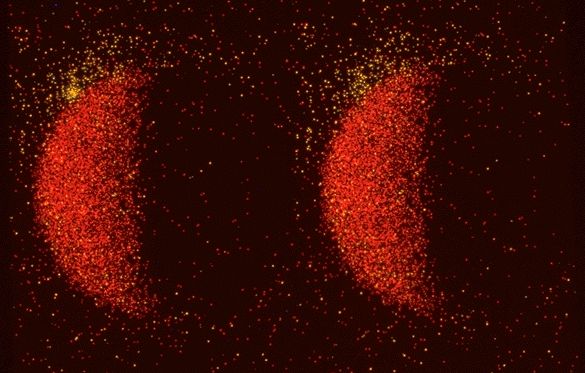Explanation: An x-ray star winks out behind the Moon in these before (left) and after views of a lunar occultation of the galactic x-ray source designated GX5-1. The false color images were made using data from the ROSAT (ROentgen SATellite), orbiting observatory. They show high energy x-rays in yellow (mostly from GX5-1), and lower energy x-rays in red (the Moon reflecting x-rays from the Sun). GX5-1 is a binary system consisting of a neutron star and a companion star in mutual orbit about the system's center of mass. The gas in the companion star's outer envelope falls toward the neutron star and accumulates in a disk around it. This disk material swirls deeper in to the neutron star's gravitational well, and is finally dumped onto its surface - in the process creating tremendous temperatures and generating the high energy x-rays.
1999 2000 2001 2002 2003 2004 2005 2006 2007 2008 2009 2010 2011 2012 2013 2014 2015 2016 2017 2018 2019 2020 2021 2022 2023 2024 2025 2026 |
Январь Февраль Март Апрель Май Июнь Июль Август Сентябрь Октябрь Ноябрь Декабрь |
NASA Web Site Statements, Warnings, and Disclaimers
NASA Official: Jay Norris. Specific rights apply.
A service of: LHEA at NASA / GSFC
& Michigan Tech. U.
|
Публикации с ключевыми словами:
Moon - accretion disk - x-ray binary - Луна - рентгеновское излучение - аккреционный диск
Публикации со словами: Moon - accretion disk - x-ray binary - Луна - рентгеновское излучение - аккреционный диск | |
См. также:
Все публикации на ту же тему >> | |
